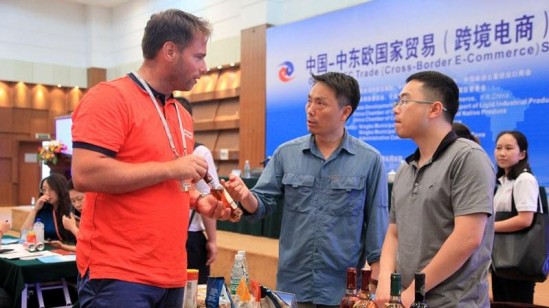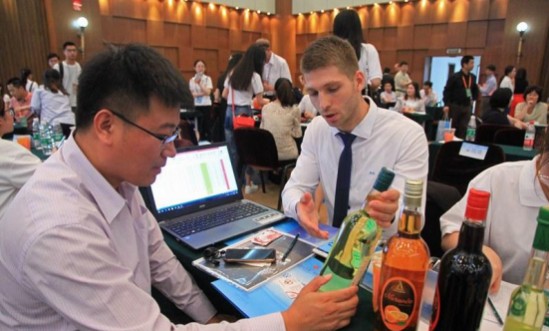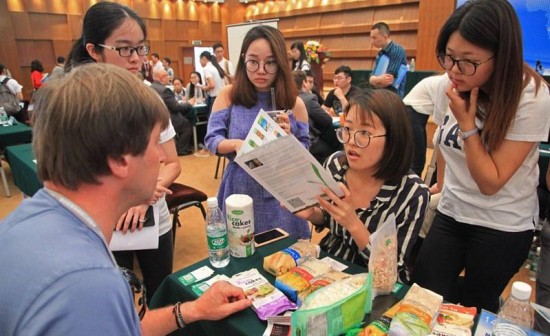What do e-commerce companies in the Central and Eastern European markets say about 'digging gold'
With the promotion of the "the Belt and Road" initiative, cross-border e-commerce in countries along the line also ushered in new opportunities for development. Recently, at the China Central and Eastern European Countries Trade (Cross border E-commerce) Matchmaking Conference, 65 exhibitors from Central and Eastern European countries brought nearly 1500 samples to connect with more than 250 buyers in China on site, and within two hours, a total of $29.6 million in product procurement intentions was reached.

The Central and Eastern European Market Becomes a Blue Ocean
A purchaser from Shaoxing City told International Business Daily that the company mainly imports consumer goods from countries such as Japan, the United States, and Germany. The domestic market competition is becoming increasingly fierce, and they have turned their attention to Central and Eastern European countries. Domestic consumers are very willing to try foreign candies and beverages, and 60% of the company's products are imported from Japan, with less development in the Central and Eastern European markets. However, the Japanese products purchased on e-commerce platforms are becoming increasingly similar, and we need to explore more foreign markets to make our products more diversified
In addition to the demand for abundant shelves, the unique product processing methods of Central and Eastern European countries are also an important reason to attract domestic cross-border e-commerce. When it comes to miscellaneous grains in China, most people may first think of various unprocessed grains or beans. However, Poles are accustomed to making miscellaneous grains into various canned and puffed foods, and their processing techniques are more diverse. "Wang Zefeng, the investment director of Henan Zhongmen Network Technology Co., Ltd., said that the company plans to introduce Polish miscellaneous grain snacks and use country differences for marketing.
In order to encourage more cross-border e-commerce to enter the Central and Eastern European market, Gang Yong, Deputy Director of the Ningbo Municipal Commission of Commerce, stated on site that if Ningbo enterprises place orders to purchase Central and Eastern European goods and achieve imports, the government will provide subsidies of 0.2 yuan per US dollar for them, and 0.1 yuan per US dollar for enterprises outside of Ningbo.
According to the statistics of the event organizing committee, according to this standard, multiple enterprises participating in this matchmaking meeting will receive a subsidy of one million yuan. Taking Ningbo Burgas International Trade Co., Ltd. as an example, this enterprise has reached a purchase intention with two Romanian companies, totaling 6.8 million US dollars. If successfully imported, it will receive a subsidy of 1.36 million RMB.
Looking forward to more tariff preferences
At the end of this year, the notice on cross-border e-commerce retail import tax policy, known as the "48 New Policies" in the industry, will come into effect. According to regulations, China will no longer levy postal duties on imported goods for cross-border e-commerce retail based on "personal items", but will instead levy tariffs, value-added tax, consumption tax, etc. based on "goods" standards.
Ma Ziqiang, Vice President of Henan Imported Materials Public Bonded Center Group Co., Ltd., expressed concern about this. According to him, nearly 1000 companies have settled on cross-border e-commerce platforms operated by the company. Since the introduction of the 'April 8th New Policy' last year, more than 200 enterprises have closed down, mainly because they cannot bear tariffs. Ma Ziqiang said that if a sunshine channel can be established, tax standards can be reasonably formulated, and individual overseas purchasing business and cross-border e-commerce can be uniformly taxed, it will be more conducive to the development of cross-border e-commerce.

Another worry about tariffs is Dimko Ruiano, executive director of Bulgarian Wine Alliance Co., Ltd. He told the International Business Daily reporter that the dry red wine produced by the company needs to pay tariffs of 40% to 45% when entering the Chinese market. In addition, Shanghai transportation has increased the damage rate of the products, and every "trip to China" of Bulgarian wine is expensive. I hope China can provide more tariff preferences to Central and Eastern European enterprises and help them reduce export costs
Currently, cross-border e-commerce has become a new engine for economic development. Jin Hong, Deputy Director of the Foreign Trade Development Bureau of the Ministry of Commerce, stated that cross-border e-commerce cooperation between China and Central and Eastern Europe will effectively promote the improvement of quality and efficiency in the "16+1 cooperation". To achieve this goal, both governments need to further strengthen policy support, respond to the concerns of both companies, and create more convenient conditions for the development of cross-border e-commerce between China and Central and Eastern Europe.

Popular Content
-
The 14th Shenzhen International Financial Expo
2020.04.23 -
The 11th China Latin American Entrepreneurs Summit Shenzhen Promotion Conference Successfully Held
2017.07.15 -
The Third Meeting of the Second Council of the Beijing International Chamber of Commerce was Successfully Held
2017.07.15 -
Guangdong vigorously trains new forms of foreign trade
2017.07.15 -
What do e-commerce companies in the Central and Eastern European markets say about 'digging gold'
2017.07.15
